
California's Blueprint for Responsible AI Governance
Gov. Newsom’s AI policy working group released its report, which could quickly be incorporated into new AI safety legislation this session.

Texas AI Bill 2.0: Private Sector Gets a Reprieve
Last Friday, Texas Rep. Giovanni Capriglione (R) filed a new version of his high-profile algorithmic discrimination legislation. The new version removes many of the requirements placed on private sector developers, deployers, and distributors of AI that were a major focus of the original bill.
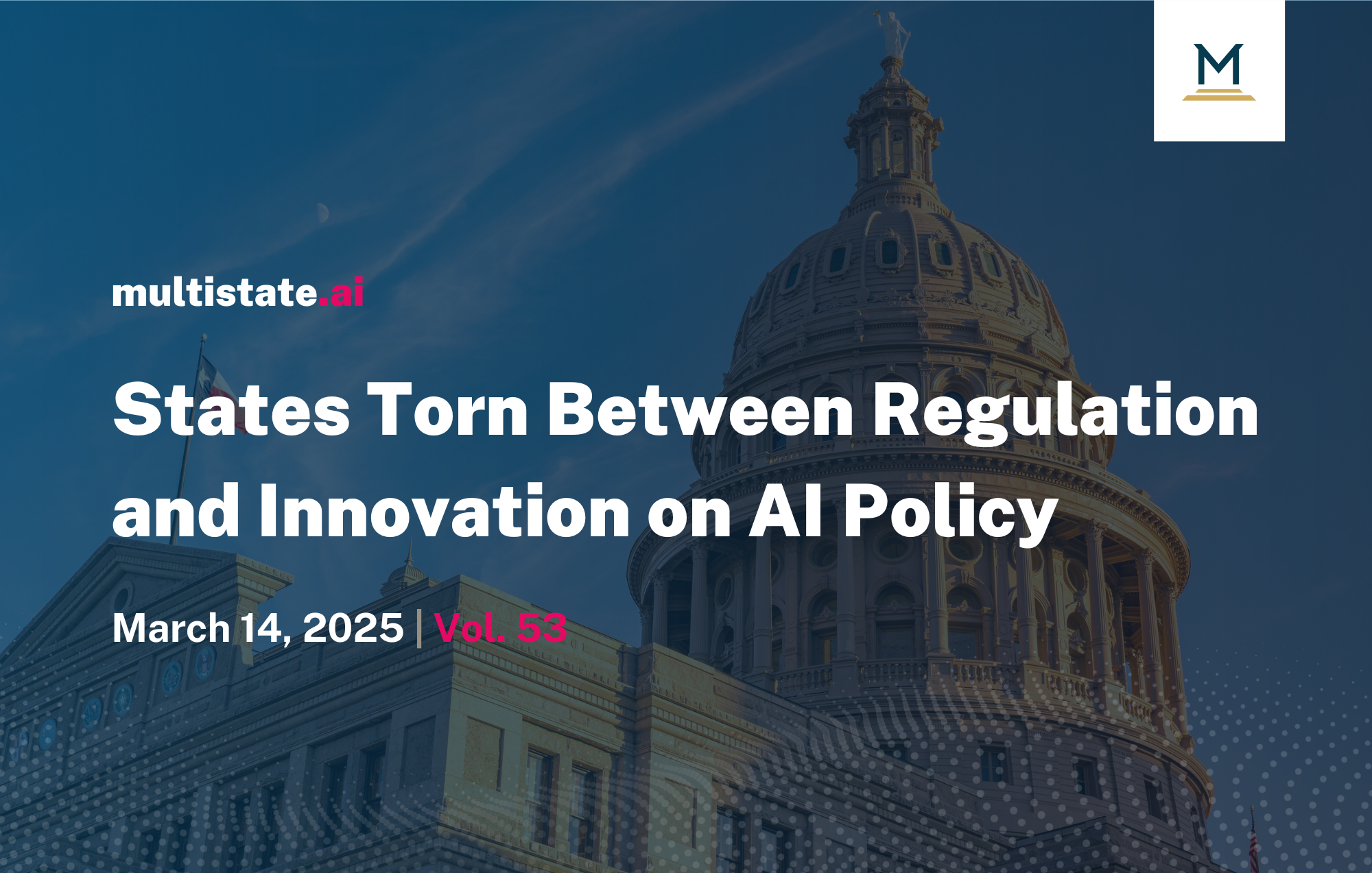
The AI Balancing Act: States Torn Between Regulation and Innovation
When we previewed the 2024 legislative session, we noted the challenge lawmakers face in regulating artificial intelligence without stifling a nascent industry with tremendous potential. Fifteen months later, those tensions have become even more apparent. Efforts to reign in AI have been hampered by concerns about its effect on the economy, national security, and geopolitics.
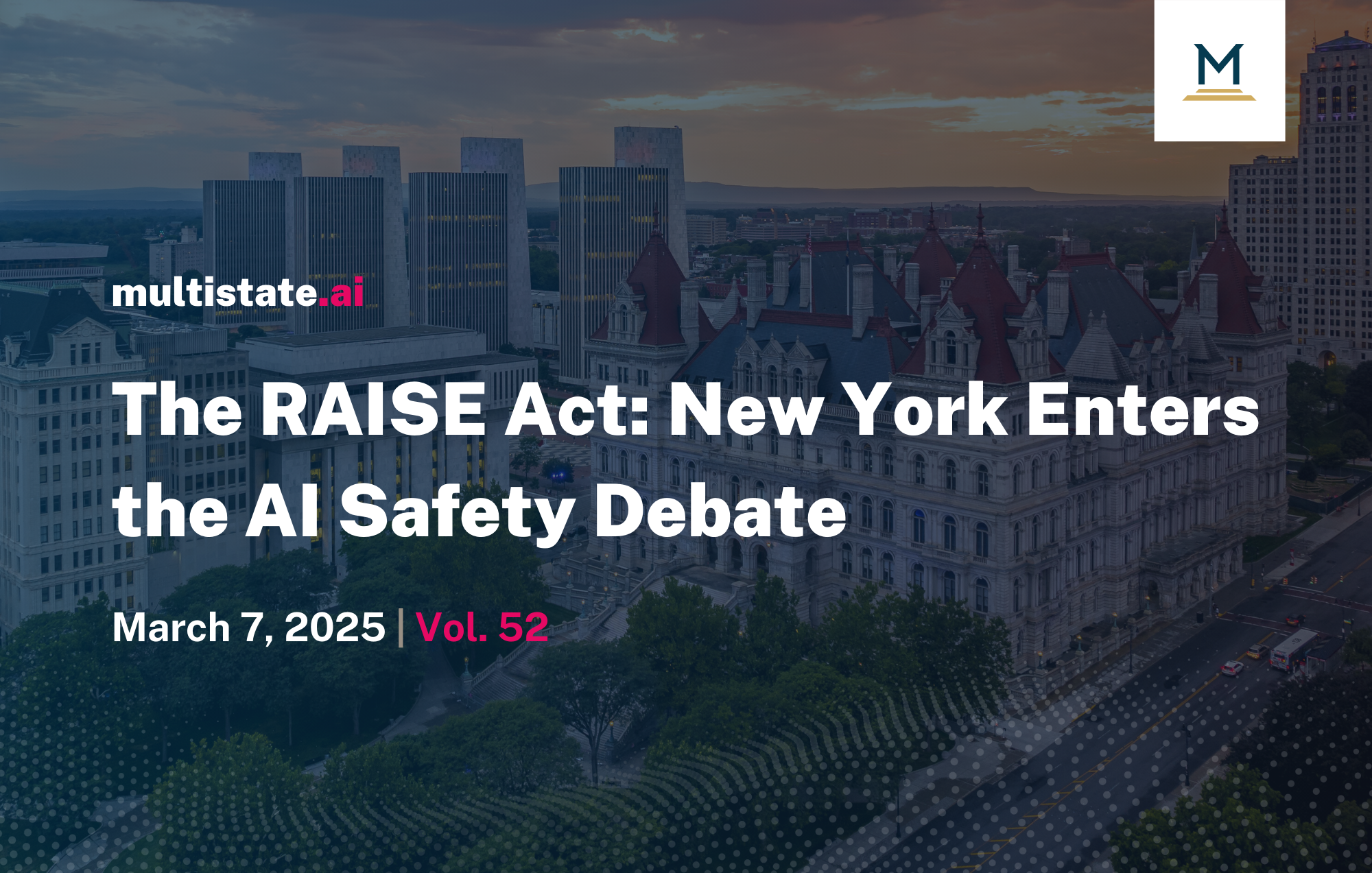
The RAISE Act: New York Enters the AI Safety Debate
We’ve got our first major AI safety bill language of the year, this time in New York. Most of the state AI policy attention late last year was squarely focused on Sen. Scott Wiener’s (D) AI safety bill (CA SB 1047) in California until Gov. Gavin Newsom (D) ultimately vetoed the proposal. Last week, Sen. Scott Wiener added language to his placeholder bill (CA SB 53), believed to be this year’s version of the AI safety bill. New York Assemblymember Alex Bores (D) released a detailed AI safety bill (NY AB 6453) inspired by Sen. Wiener’s SB 1047.

Trendsetter Alert: California's 33 New AI Bills Explained
California lawmakers enacted nearly 20 AI-related bills last year, although Gov. Gavin Newsom ultimately vetoed the most high-profile bill — Sen. Scott Wiener’s AI safety proposal (CA SB 1047). This year lawmakers in California have returned with even more ideas on how to regulate AI, introducing a flurry of bills ahead of last Friday’s bill introduction deadline. Most of the proposed bills have a narrow scope but take novel approaches to addressing some of the concerns raised by the emerging technology.

The Return of Connecticut’s SB 2: Algorithmic Discrimination
Last year, many expected Connecticut to become the first to pass artificial intelligence regulation due to the leadership of bill sponsor Sen. James Maroney (D). While his bill easily passed the Senate, it stalled out in the House when Gov. Ned Lamont (D) threatened to veto it. After consulting with stakeholders, Sen. Maroney has returned with a new bill he hopes to shepherd to the finish line this year. But it remains to be seen if Gov. Lamont will again play spoiler.
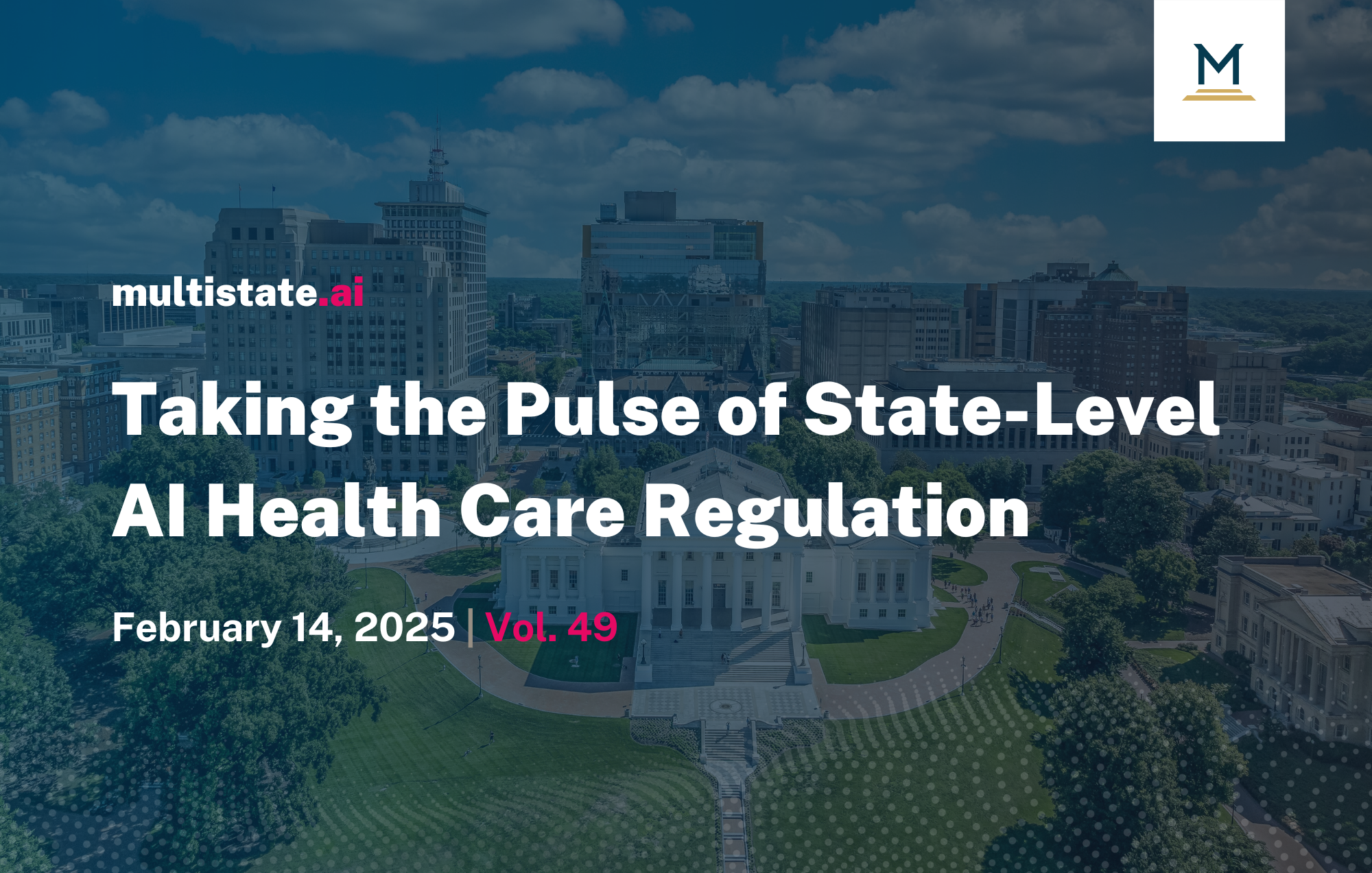
Taking the Pulse of State-Level AI Health Care Regulation
When proponents talk about the benefits of AI, one area of focus for the future of humanity is health care. Over time, it is hoped that AI can lead to breakthroughs in diagnosing diseases, discovering new drugs, and detecting cancer. Prior to that advancement coming to fruition, the messaging from lawmakers has been clear: we need to ensure consumer privacy and quality of care is protected and this advancement has to be done in a deliberative mechanism to mitigate disruption to health care delivery. This year, lawmakers in several states have introduced legislation addressing AI and its use in the health care industry, particularly for health insurers.
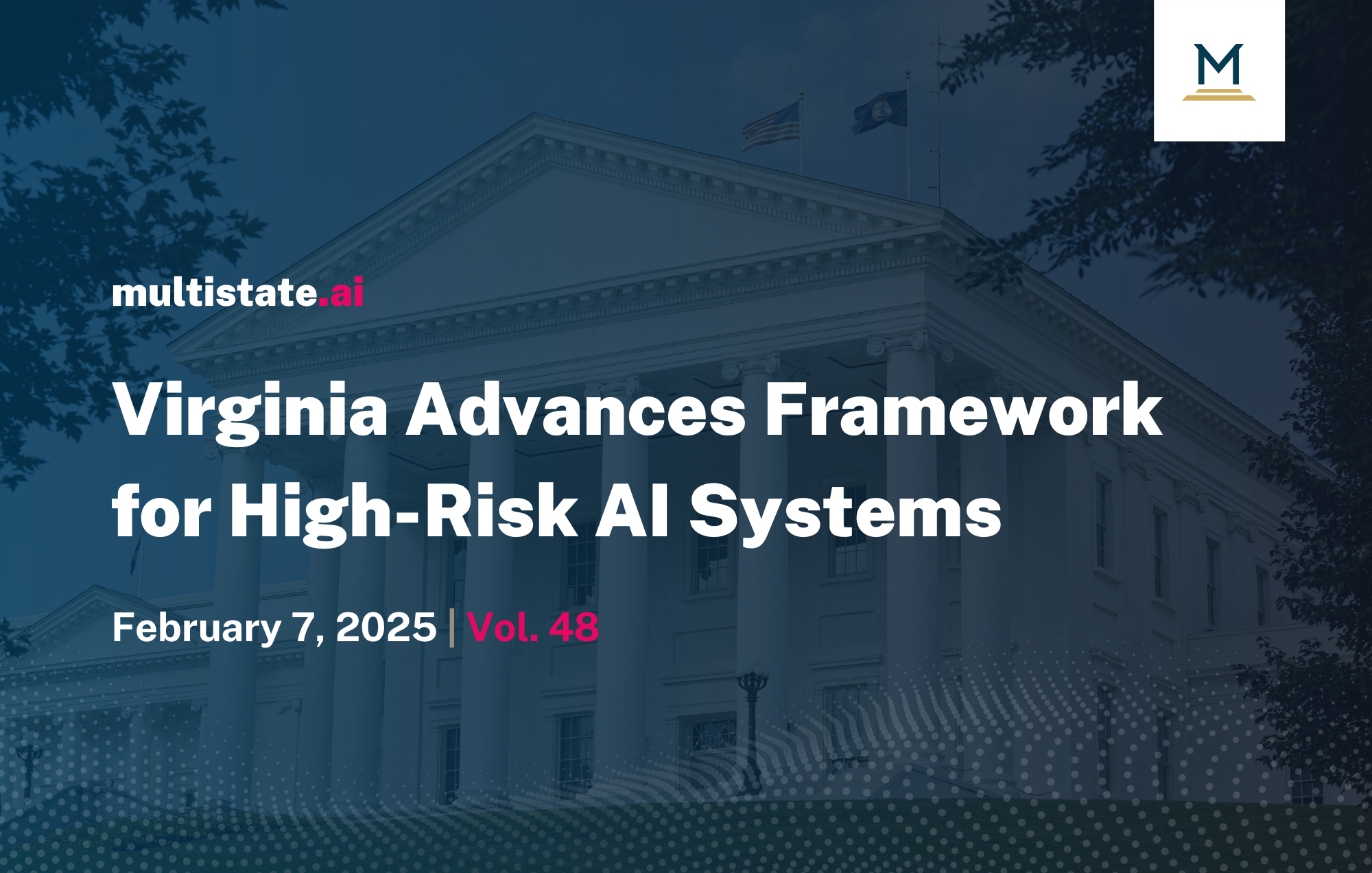
Virginia Moves Legislative Framework for High-Risk AI Systems
Unlike legislatures in 48 other states, the Virginia General Assembly has entered the second year of its two-year legislative session and will wrap up business in a few short weeks as lawmakers prepare for elections this fall. Unsurprisingly, Virginia lawmakers have wasted no time moving major AI legislation, with two major bills passing their chambers of origin this week.

Lawmakers Propose Right of Publicity Protections for Digital Replicas
Last year, state lawmakers introduced hundreds of bills regarding sexual and political deepfakes, enacting several of them. Political deepfake bills sought to protect political candidates from misleading communications while sexual deepfake bills protected individuals from having embarrassing computer-generated images of them distributed. This year, concerns about the use of one’s image have spurred lawmakers in some states to consider legislation concerning digital replicas, which may impact advertising and other commercial media.
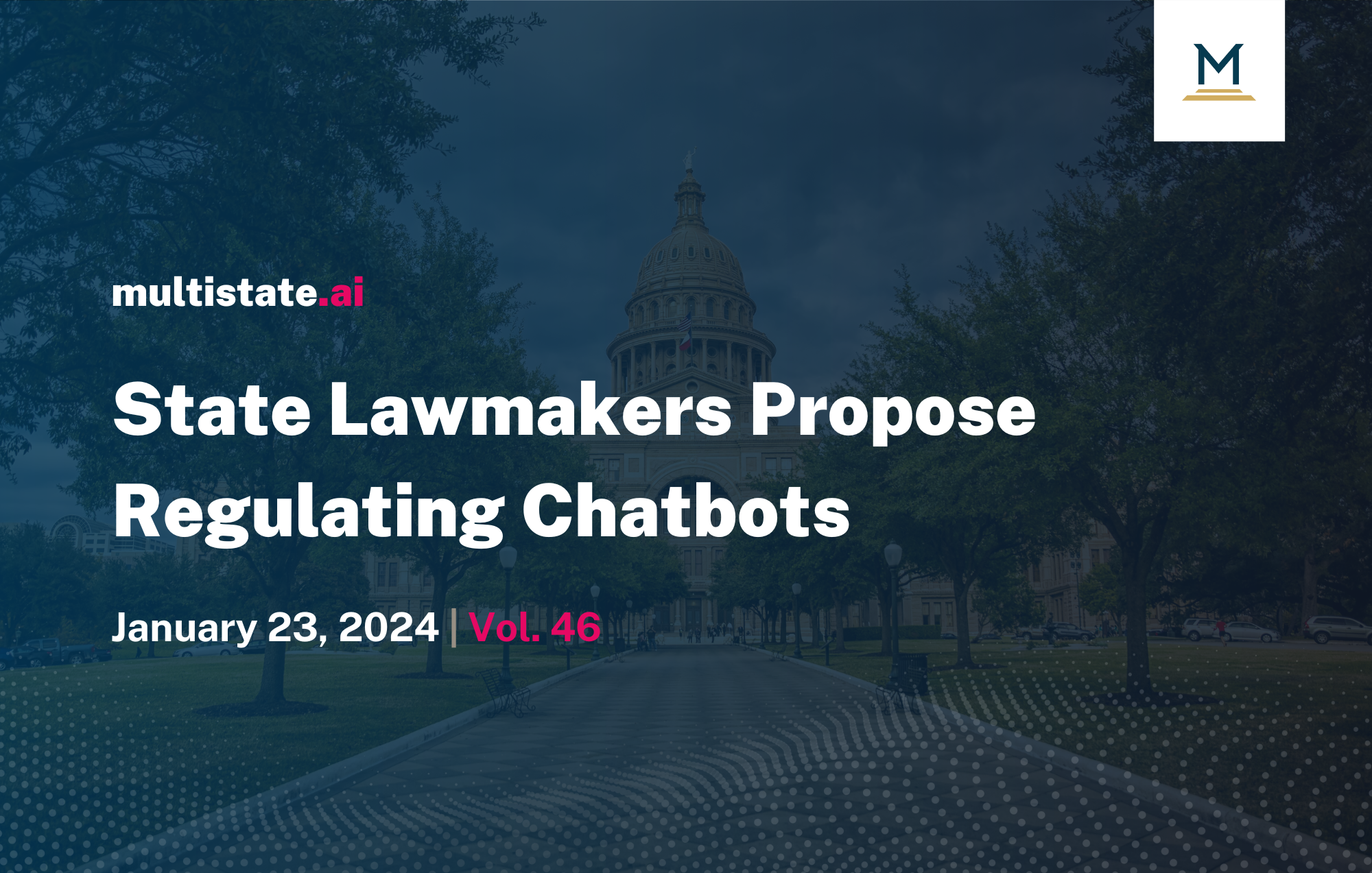
State Lawmakers Propose Regulating Chatbots
Chatbots have become pervasive in customer service, health care, banking, education, marketing, and sometimes, purely for entertainment purposes. But following a high-profile lawsuit stemming from a teen who committed suicide after a conversation with a chatbot, the technology has come under further scrutiny. State lawmakers are already introducing bills to regulate their use, which could have an impact on a wide-ranging number of businesses.
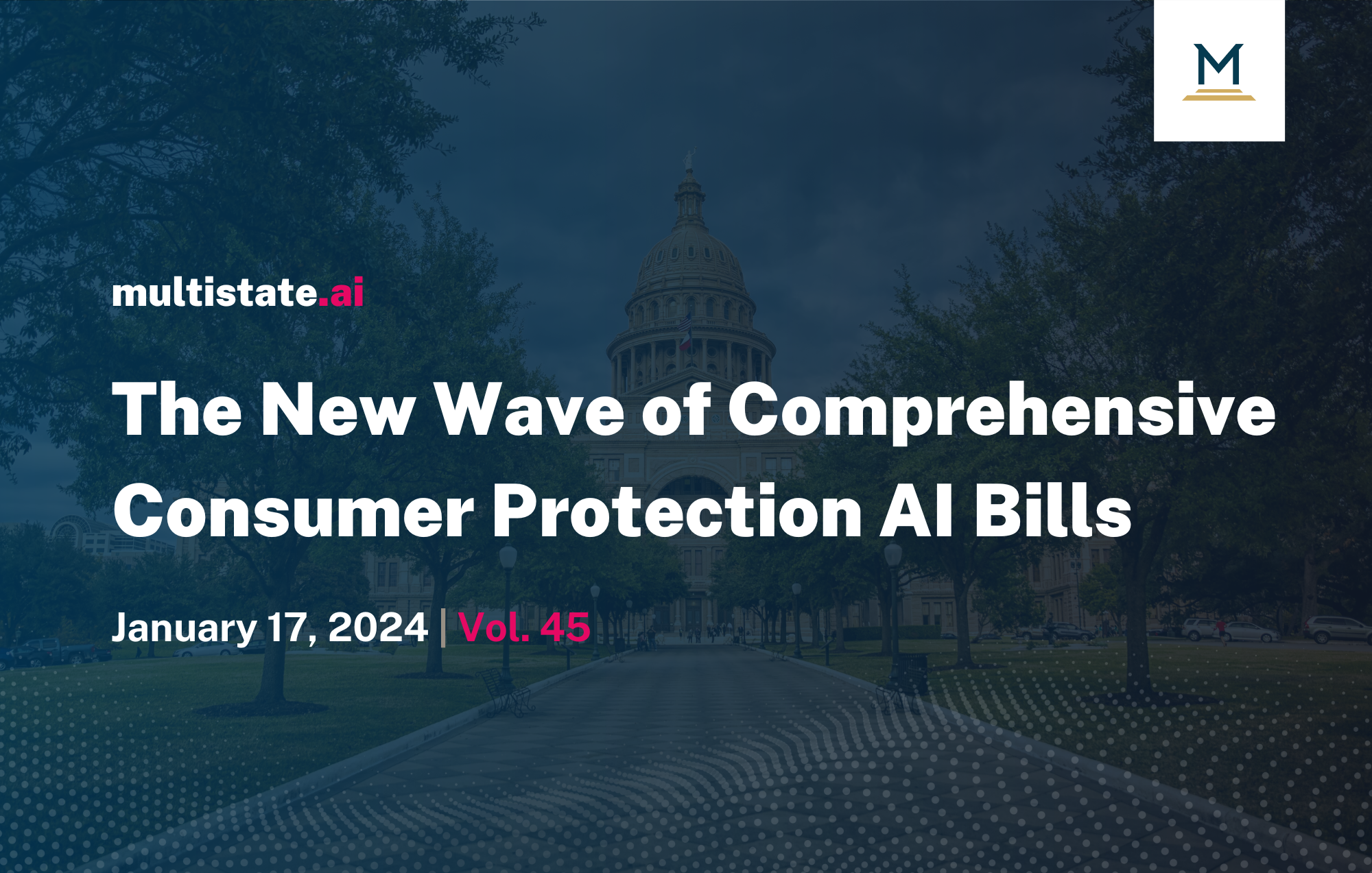
The New Wave of Comprehensive Consumer Protection AI Bills
The AI policy trend that I’m keeping a keen eye on this year is what I’ll refer to as the “comprehensive consumer protection” AI bills. These originated last year with the introduction of Sen. Maroney (D) SB 2 in Connecticut. While that particular bill failed to cross the finish line due to a gubernatorial veto threat, legislation originally modeled off CT SB 2 passed the legislature in Colorado and was (reluctantly?) signed by Gov. Polis (D) into law. Notably, that law (CO SB 205) won’t go into effect until February 2026, giving lawmakers time to make necessary amendments.
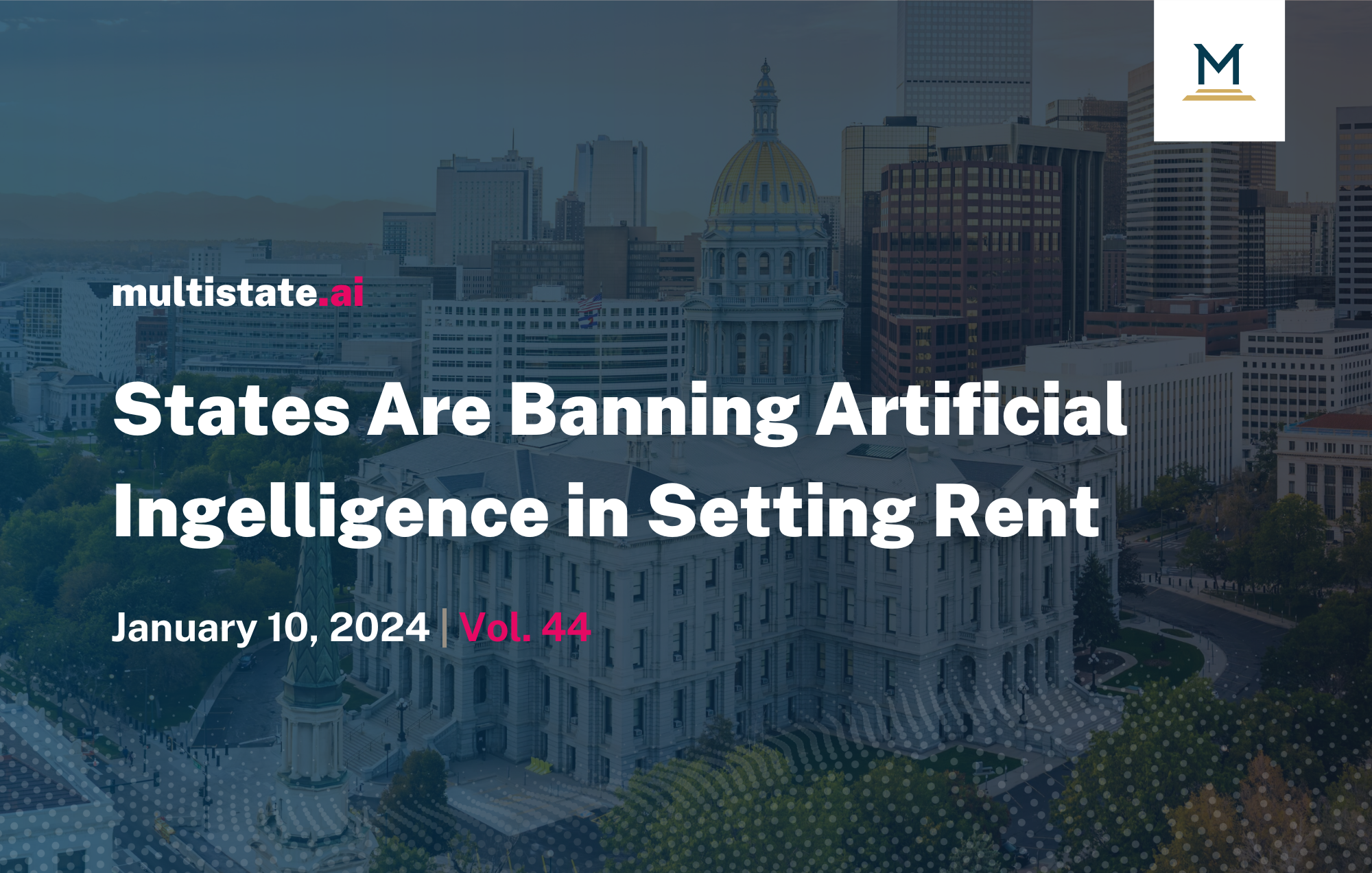
States Ban AI in Setting Rent
We’re closely watching the introductions of anti-bias legislation inspired by last year’s proposed CT SB 2 and enacted CO SB 205, but they’ll only be a fraction of the bills debating in state capitol hearing rooms this year. Those bills attempt to address major consumer interactions with AI by laying out broad fields like employment, financial and legal services, housing, health care, and insurance. But narrower focused bills that target these industries individually or even a subset of known issues with AI and those sectors, are also popular.
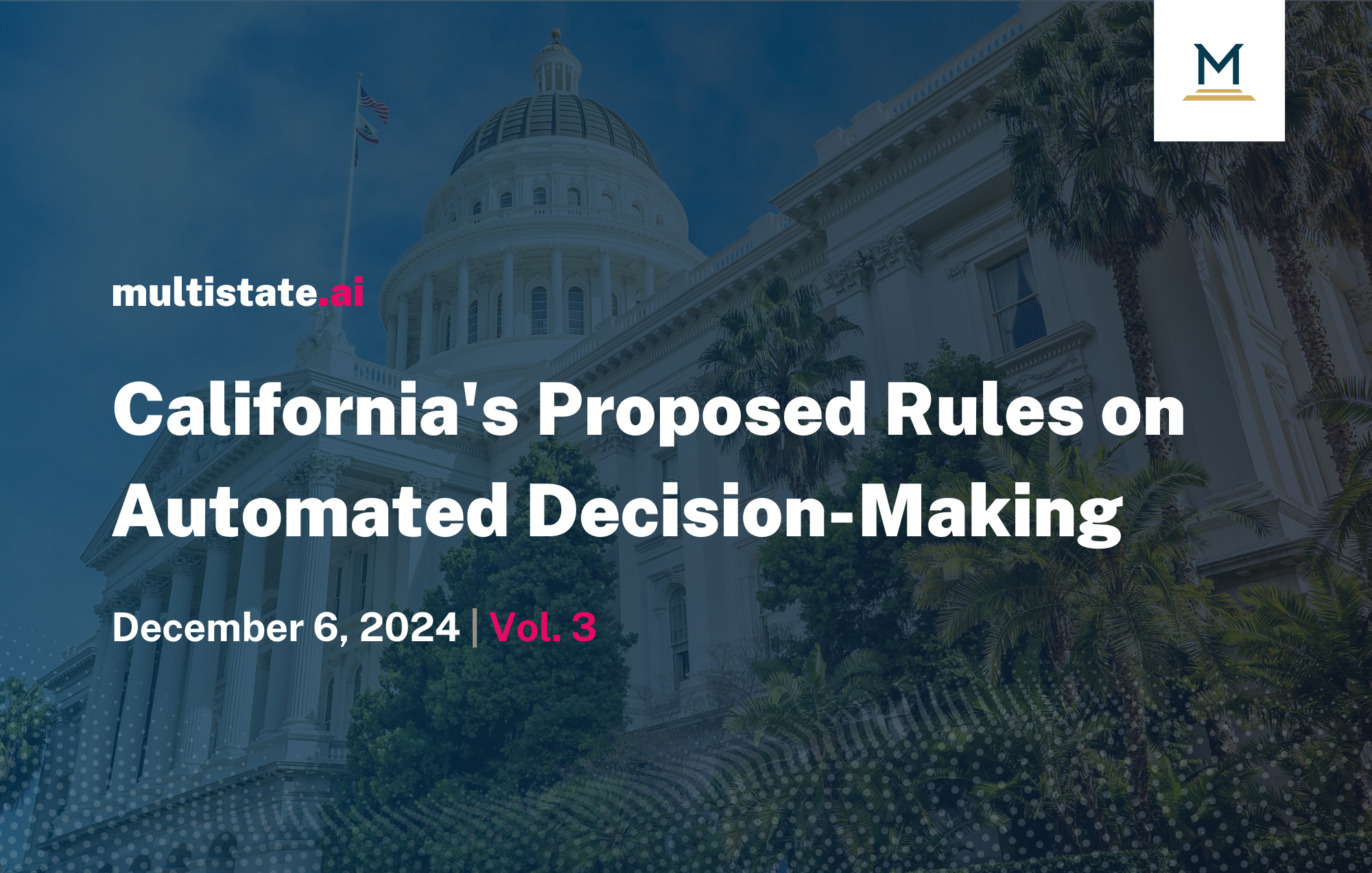
California's Proposed Rules on Automated Decision-Making Technology
California was the first to enact a comprehensive data privacy law and establish an agency to protect consumer data. The California Privacy Protection Agency (CPPA) has been slow to promulgate regulations, last month initiating formal rulemaking to update privacy laws and create new regulations on “automated decision-making technology” — specifically aimed at the emergence of artificial intelligence. These rules could have a broad scope with wide-ranging obligations for businesses that use the emerging technology to facilitate decisions.
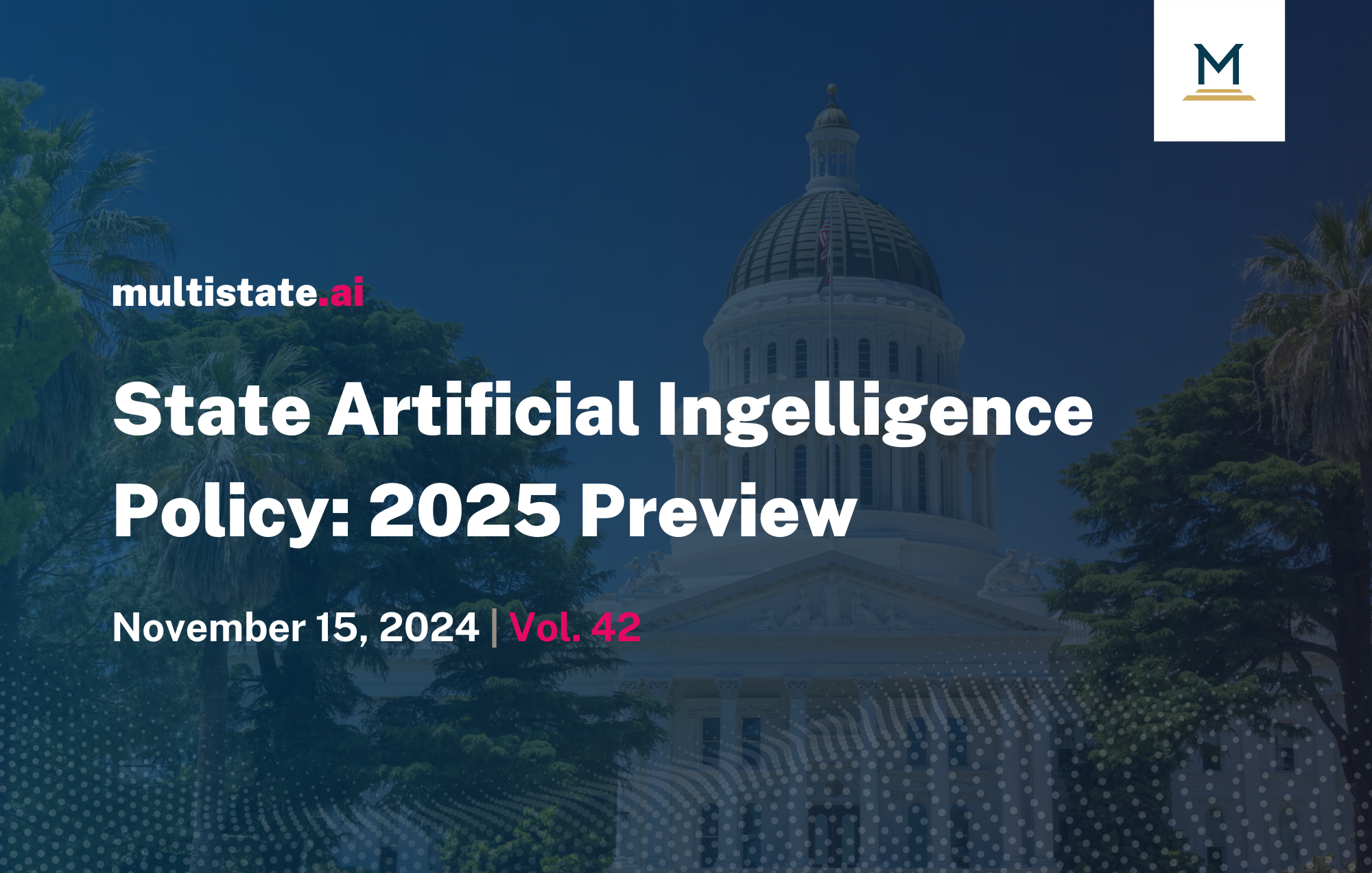
State AI Policy: 2025 Preview
The elections are over, and while some states are still counting the final votes, we have a solid understanding of who will wield political control in each of the states next year. Lawmakers are already prefiling bills as we anticipate a wave of new legislation on artificial intelligence. As the first year of the legislative biennium in most states, 2025 should be very active with first-year lawmakers looking to get in on the action and a typically longer odd-year legislative session calendar.
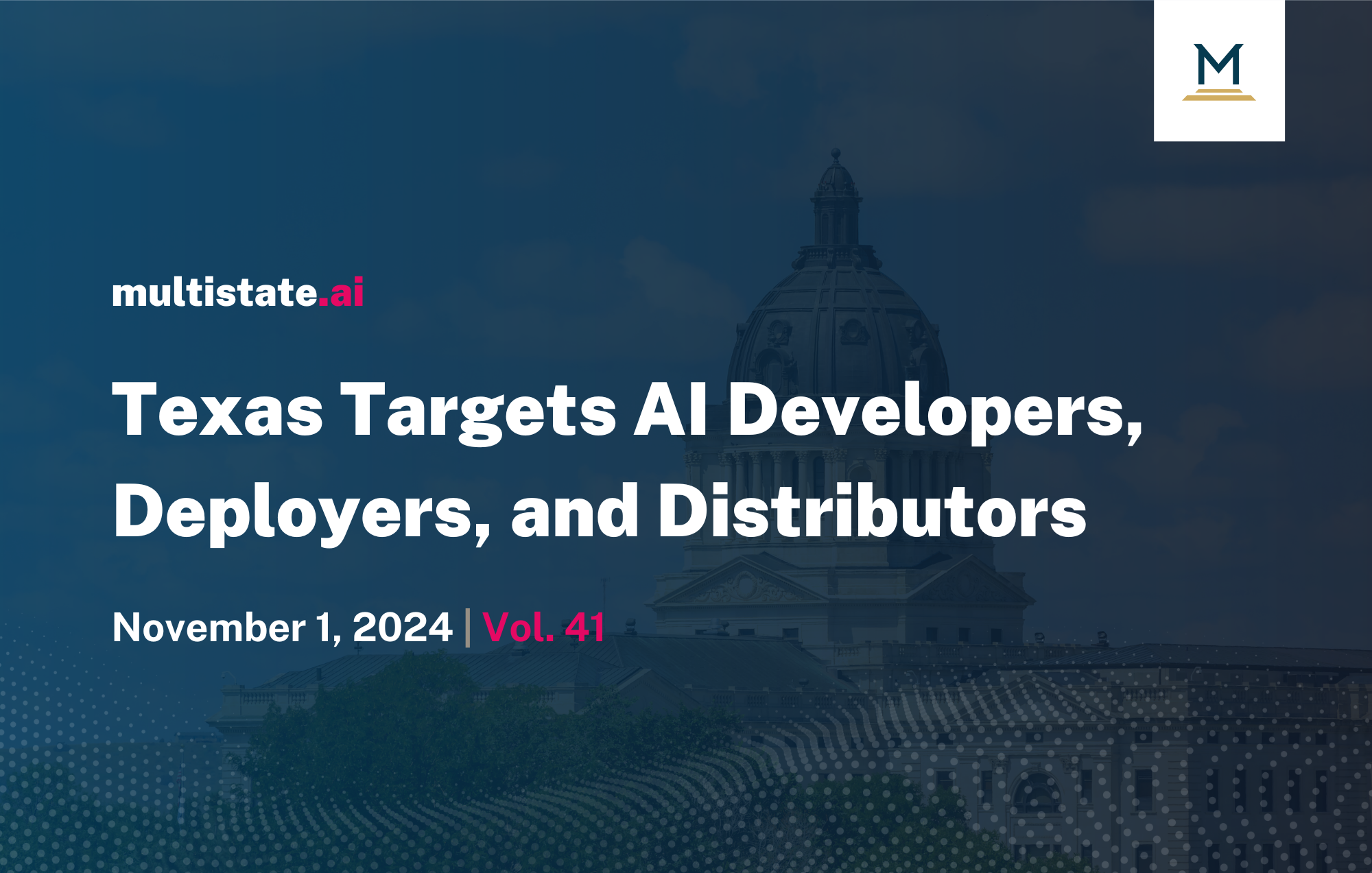
Texas Proposal Targets AI Developers, Deployers, and Distributors
This week, Texas Rep. Giovanni Capriglione (R) unveiled a draft of his anticipated artificial intelligence legislative proposal for next year’s legislative session, as reported by Austin Jenkins at Pluribus News. Capriglione has tried to position the bill as a more business-friendly model than the law enacted by Colorado and legislation proposed in Connecticut. In fact, this bill is likely a preview of the type of model legislation we’ll see introduced across a dozen states next year developed by a bipartisan group of 200 state lawmakers from 45 states.
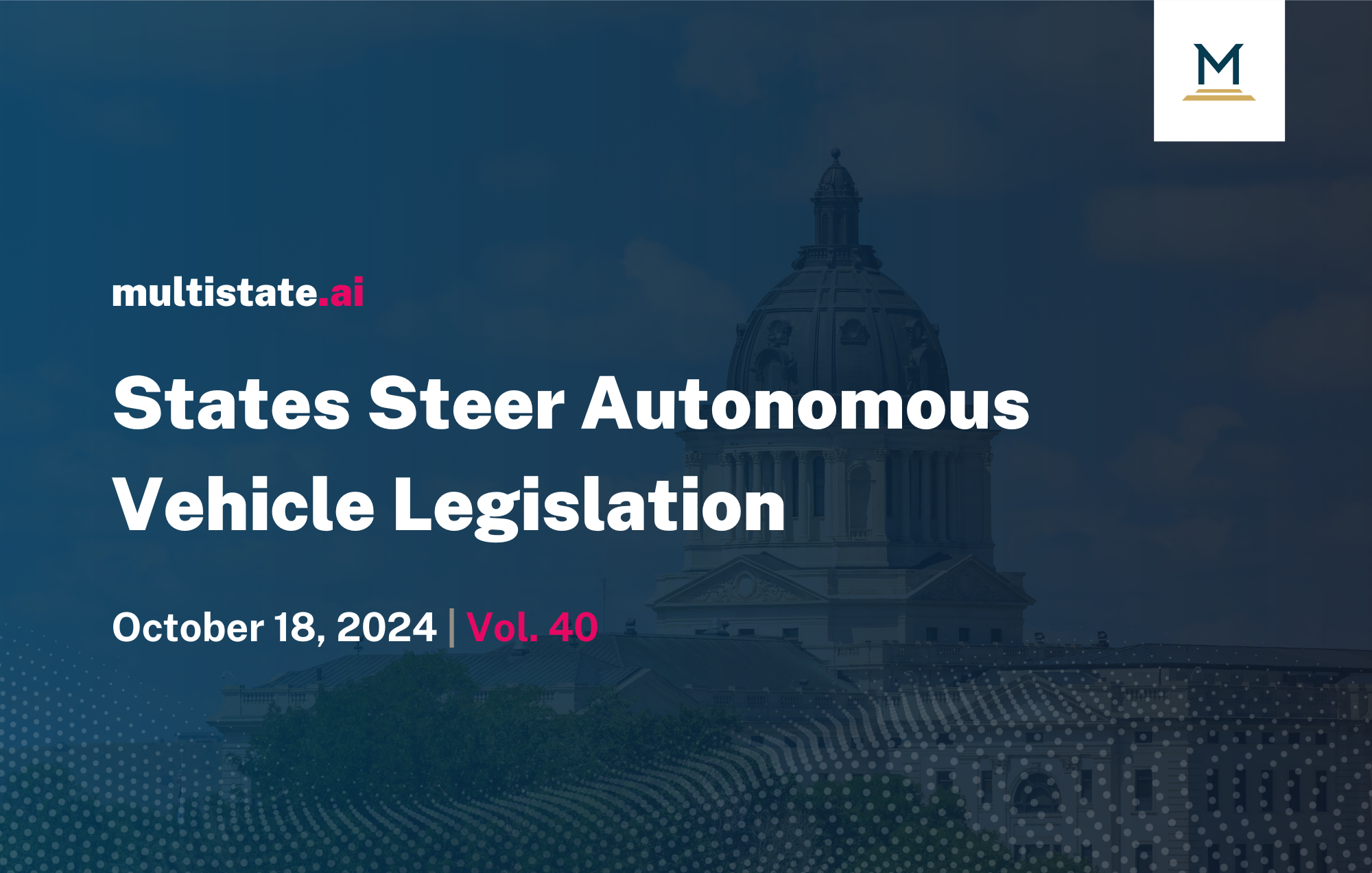
States Steer Autonomous Vehicle Legislation
While much of the focus on AI this year has been on the newest trend of generative AI, states have also addressed an AI-related legislative trend with more history — autonomous vehicles (AVs). As manufacturers continue testing and deploying AVs on public roads, most states now have laws in place regulating the operation of AVs on their public roads.
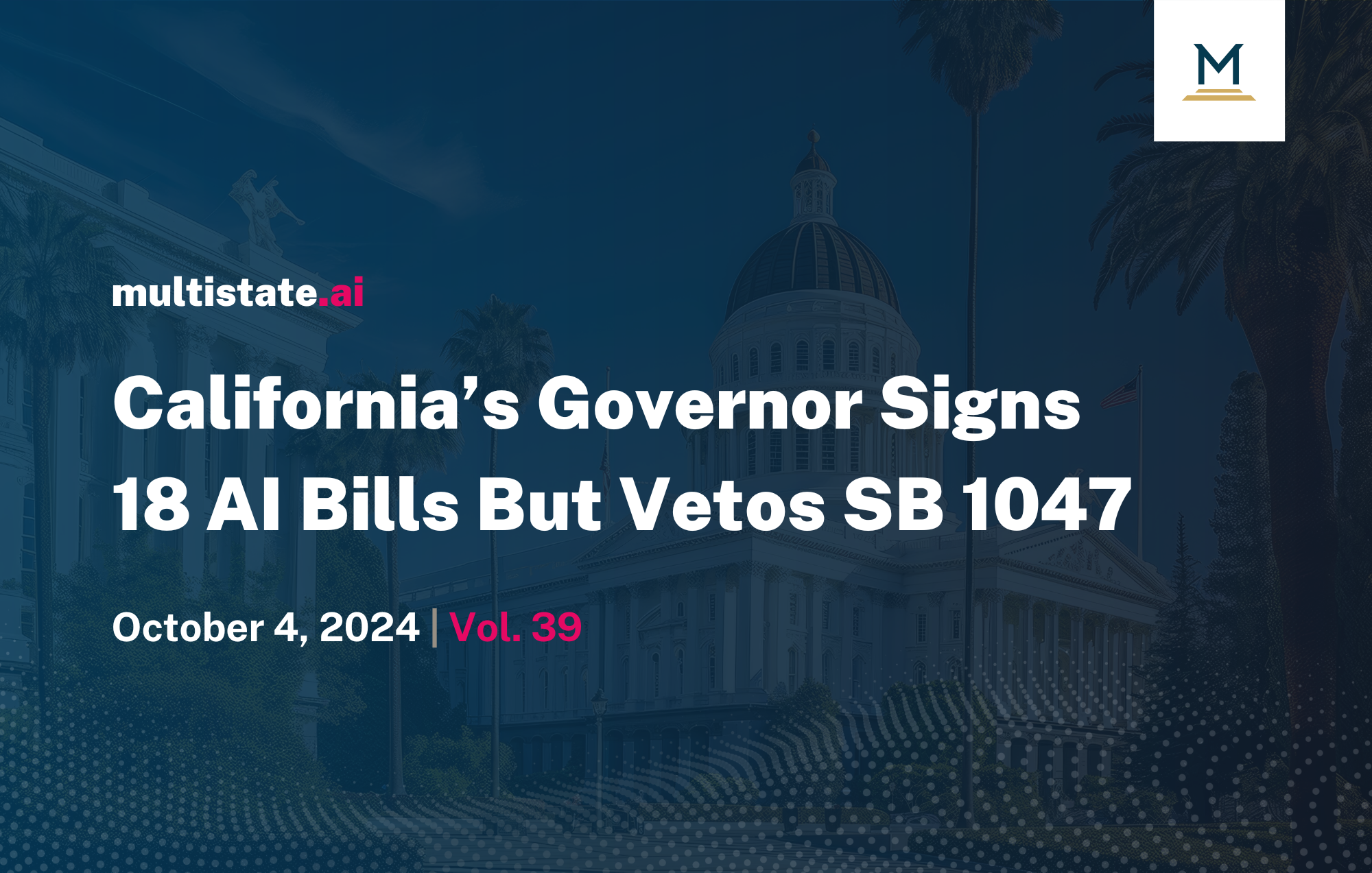
California’s Newsom Signs 18 AI Bills But Vetoes SB 1047
California solidified itself as the leading state in the volume of AI-related laws after Gov. Newsom signed 18 additional AI bills into law in September. However, Newsom vetoed the most high-profile AI bill of the year (CA SB 1047) aimed at the safety of frontier AI models. Let’s take a look at which bills were enacted, which were vetoed, and what it means for AI policy in 2025.
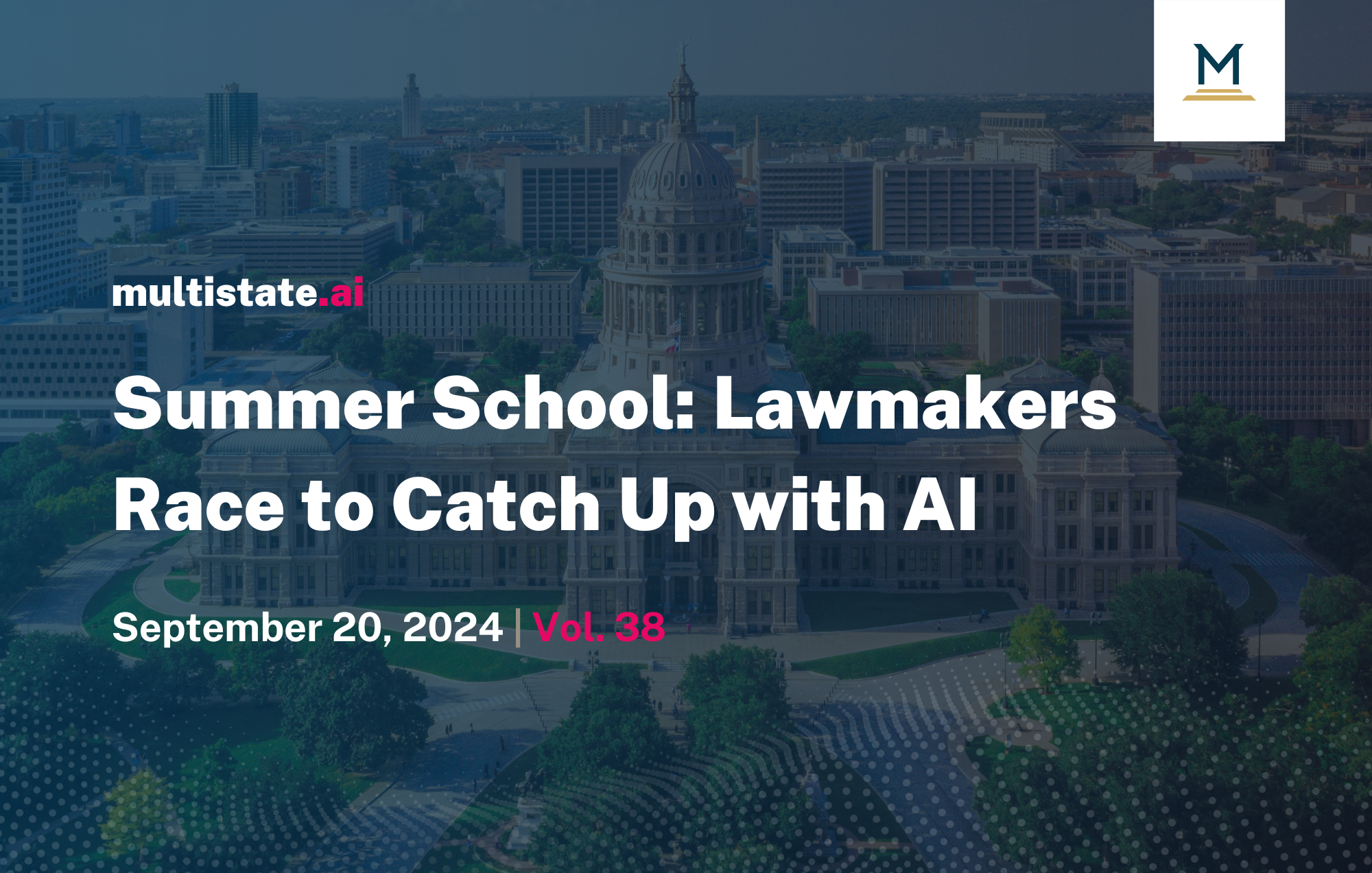
Summer School: Lawmakers Race to Catch Up with AI
Although state lawmakers introduced over 600 bills relating to AI this year, less than 15% of them became law. While legislators may have a lot of experience in other areas of public policy, artificial intelligence is such a new technology that many need time to educate themselves on the capabilities and risks. With most sessions complete for the year, many state lawmakers are using the summer and fall to study AI through special committees and task forces — 33 states have established groups specifically tasked to study AI or assigned AI to a standing committee.
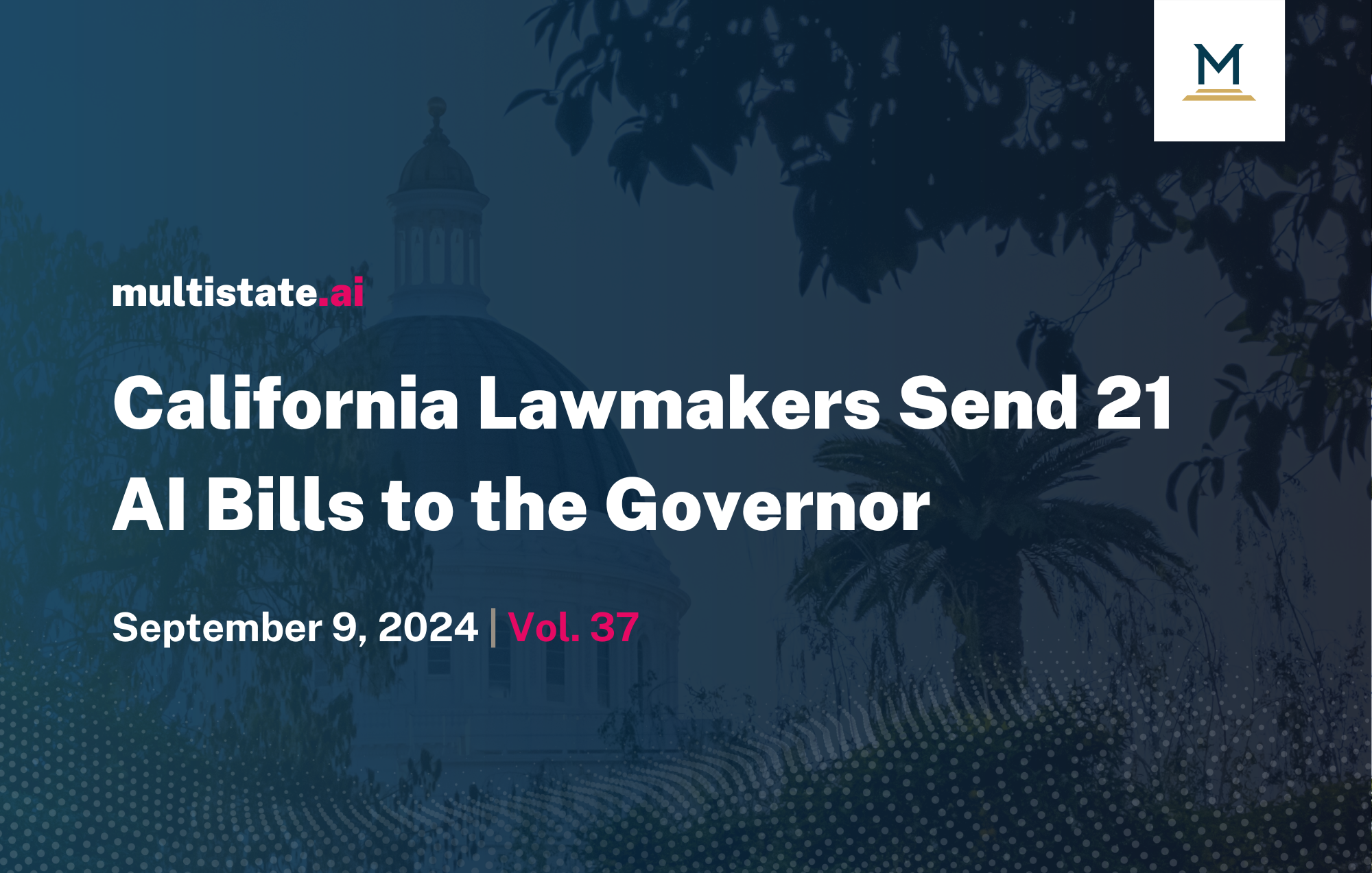
California Lawmakers Send 21 AI Bills to the Governor
Lawmakers sent an entire menu of AI-related bills to the governor’s desk for his approval. By our count, Gov. Newsom has 21 bills related to AI sitting on his desk. While SB 1047 has garnered the majority of attention, this week we’re providing an overview of each of the bills that made it out of the legislature this year. Gov. Newsom has until Sep. 30 to decide whether they become law or not.
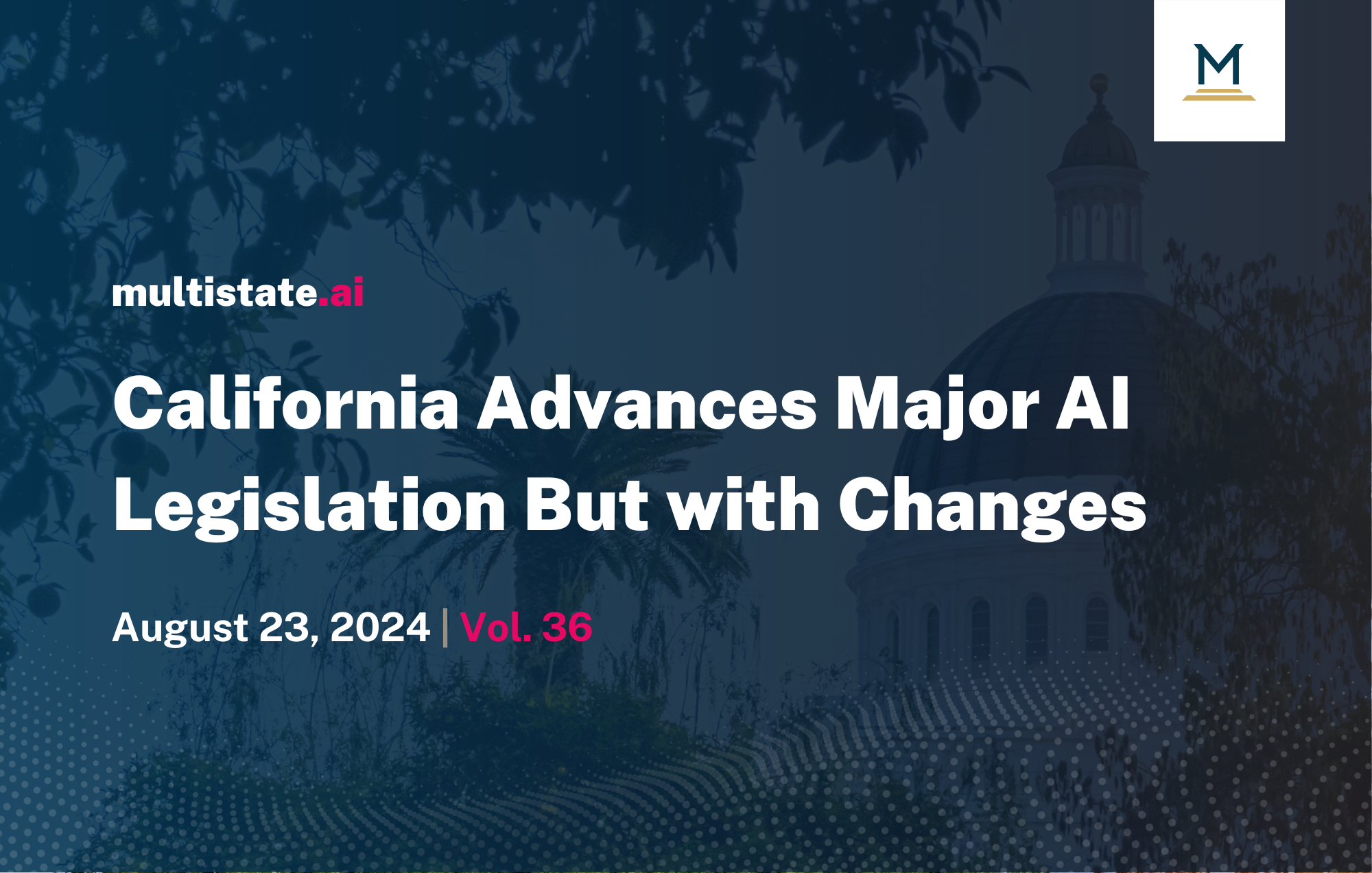
California Committee Advances Major AI Legislation But with Changes
The AI industry is nervously monitoring California for what could be a new standard in regulation of the nascent technology. California lawmakers advanced major AI legislation this week, but with changes to address concerns raised by developers. The amendments may smooth the path for legislation to pass before the session adjourns later this month.
